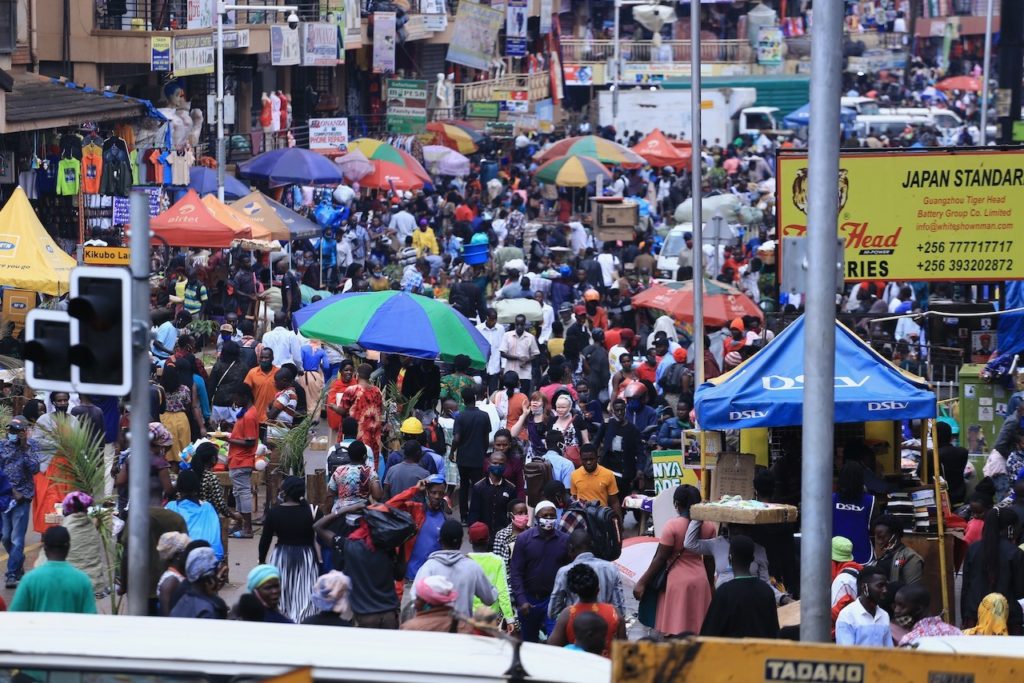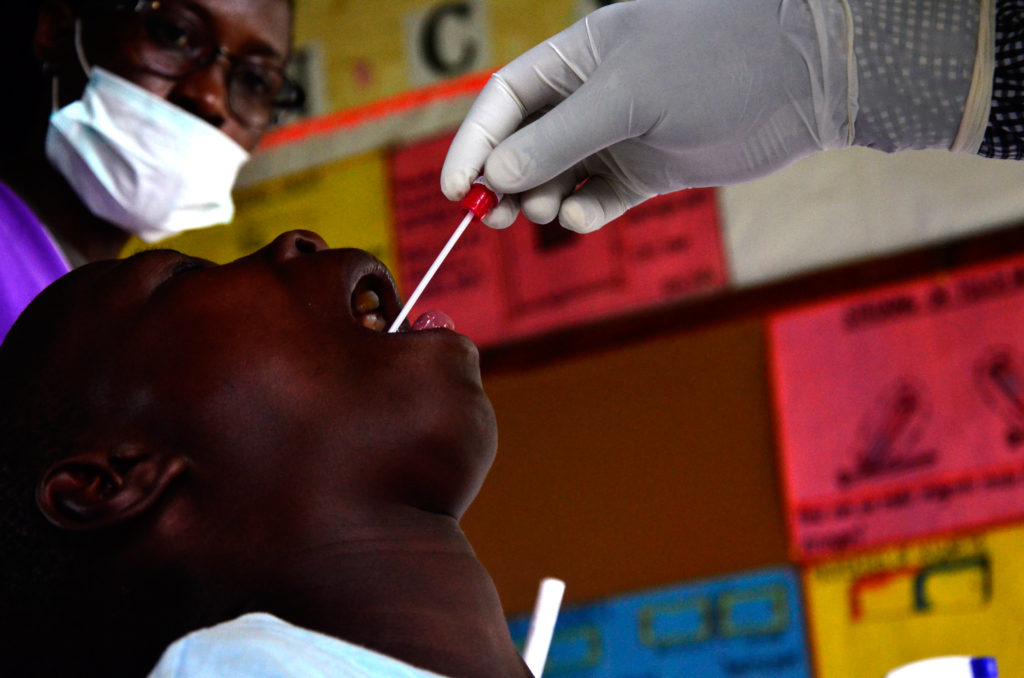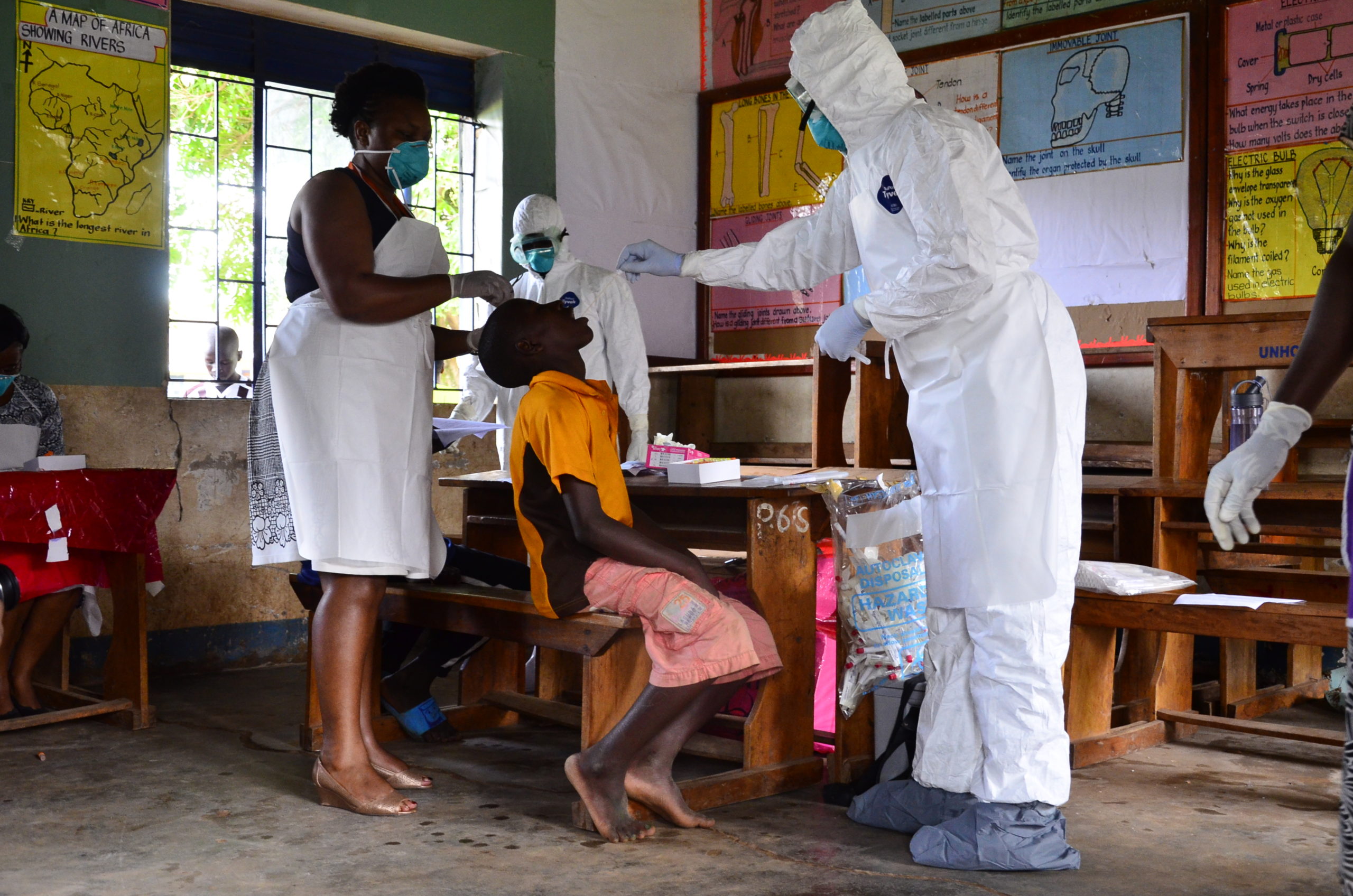By Evelyn Lirri
September 21 marks half a year since the novel coronavirus was detected in Uganda, with the first case linked to a returning traveler from the United Arab Emirates (UAE). Within 10 days of the first documented case, the country was placed under lockdown. Since that period in March, more than 6,400 people have tested positive and 63 have died from the virus as of September 21, 2020 (visit our Data and Graphics section for real-time updates).
In the past seven days alone—between September 14th and 20th, 1,489 people have tested positive for COVID-19 in the country.
Despite the surge in the daily number of people testing positive, experts say Uganda has fared better than many countries in the region in terms of the number of overall infections per capita and number of deaths since the first case of the virus was registered in the country.
Public health experts credit a combination of early interventions, including imposing strict stay-at-home measures, closing down schools, places of worship and banning of public gatherings for the slow spread of the virus in the country.
Uganda imposed one of the strictest COVID-19 lockdown measures on the African continent—35 restrictions in total were put in place, including the banning of movement of vehicles and people, except with special authorisation.
“The lockdown measures we put in place were meant to help us understand the virus better and therefore make decisions based on what would help us manage the disease,” said Dr. Monica Musenero, the Presidential Advisor on epidemics.
While Uganda’s COVID-19 response started on a positive note, Dr. Musenero says the public is beginning to let their guard down by not observing prevention protocols.

“When we started the COVID-19 fight, the public cooperated but now we see people going back to the pre-COVID-19 days. They are not wearing masks or social distancing,” she added.
With no vaccine in sight, Dr. Musenero says the cycle of COVID-19 transmission can only be broken if individuals take responsibility to protect themselves by wearing face masks in public, and at the same time practise social distancing and good hygiene.
Overall, COVID-19 community infections are rising in Uganda, exacerbated in the last two months by the easing of lookdown restrictions.
The country registered its highest single-day rise in new infections to-date on September 18th with 423 people testing positive.
On the eve coinciding with the six months since Uganda reported its first case of COVID-19, President Museveni addressed the nation where he further eased some of the restrictions imposed since March, including reopening of schools for candidate classes, reopening of international air and land borders and places of worship provided Standard Operating Procedures are followed.
“On account of the tough measures, we limited the spread of infections and few of the imported cases were closely handled by the medical staff,” Museveni said.
But that outlook has been changing in recent weeks, as more people test positive for COVID-19. Kampala city alone is responsible for 30 per cent of the cases, according to the President, which he attributed to “indiscipline and confusion”.
An even complicated situation is the fact that majority of COVID-19 cases registered in the country are asymptomatic, a scenario which could be further fueling infections.
Dr. Charles Olaro, the director for clinical services and head of COVID-19 treatment centres observes that stigma remains a major challenge with people not accepting that COVID-19 is real.
In some of the cases, he says, some Ugandans continue to live in denial of the fact that their relatives have died of COVID-19, because of the pre-existing health conditions they already had prior to getting the coronavirus.
“Most of the people who have died in the country so far already had a pre-existing non-communicable disease,” said Dr Olaro in an interview with Vox Populi.

The next six months
Experts say it is difficult to predict what will happen over the next six months. As COVID-19 numbers continue to rise globally, a push to develop a vaccine or find treatment against the coronavirus is also ongoing, with several experimental drugs currently under trial in several countries across the world. Uganda has joined this effort with the launch, last week, of a clinical trial that involves the use of convalescent plasma from patients who have recovered from the virus. Convalescent plasma is the plasma from individuals who have recovered from an infection. This plasma may contain antibodies against that infection, which when administered to a COVID-19 patient blocks the progression of the disease to a severe form.
“From our study, we have found that people who recovered from COVID-19 three months ago still have antibodies,” said Dr. Bruce Kirenga, the head of the Lung Institute at Makerere University and Principal Investigator of the trial. He, however noted that it is important to draw the plasma as soon as a patient has recovered from the infection. Participating volunteers in the trial will require two units of plasma, which will be administered intravenously, according to the researchers.
While further easing lockdown restrictions, President Museveni in his latest COVID-19 address noted that closing schools in March was critical in limiting the spread of the virus.
A phased re-opening now, with only university finalists and students in the candidate classes who are able to social distance, the septuagenarian leader hopes, can mitigate any potential large scale spread of the coronavirus.
“We are opening schools because the cost of waiting will be high. If the batch of 2020 do not move on, what will happen to the batch of 2021?” the President rhetorically asked.
A decision on other categories of students, he said, would be taken in January 2021. For now, some of the restrictions imposed six months ago remain in place, including a nighttime curfew from 9 p.m. to 5 a.m.
Key timelines
Here are some of the key timelines to-date.
March 18: President Museveni addresses the nation and orders closure of schools, places of worship, bars and public gatherings with immediate effect as part of the country’s early steps to contain the potential spread of COVID-19.
March 21: Uganda registers its first official case of COVID-19, a returning traveler from the United Arab Emirates.
March 22: President Museveni issues directive banning all passenger flights into the country. Only cargo planes and crew allowed into the country. Borders are closed.
March 31: Total lockdown imposed in the country, including a dusk-to-dawn curfew.
April 4: Relief food distribution starts for vulnerable people affected by COVID-19 lockdown.
May 4: Ministry of Health announces the first rapid assessment survey to be conducted to establish the extent of COVID-19 community transmission.
May 4: President Museveni announces extension of nationwide lockdown while easing some restrictions, including allowing restaurants and hardware stores to open for business.
June 02: Lockdown measures eased, including free movement of people but subject to wearing of face masks in public spaces, observing social distancing and washing hands with soap and water.
July 21: A woman in the eastern Uganda town of Namisindwa becomes the first to die from COVID-19 in the country. The death is registered exactly four months to the date the first confirmed positive case is documented in the country.
July 21: Curfew hours further extended from 7-9:pm as salons, boda boda cyclists and arcades are allowed to operate while observing Standard Operating Procedures.
July 22: Health Minister, Dr. Jane Ruth Aceng flags off second Rapid Assessment Survey to establish the extent of community transmission of COVID-19. Survey targets communities around points of entry and high-risk groups such as frontline health workers and truck drivers.
September 3: Uganda Virus Research Institute (UVRI) announces it has been selected as a reference laboratory for COVID-19 in Africa. UVRI spearheads COVID-19 testing in Uganda.
September 16: Ministry of Health launches randomized clinical trial to use convalescent plasma for treatment of COVID-19 in in the country.
September 18: Highest number of COVID-19 positive cases to be confirmed in a single day to-date—at 423. Most of the cases are from contacts of previous positive individuals and alerts.
September 20: President Museveni makes his latest address on COVID-19 which coincides with the six-month anniversary, makes a number of proclamations, including allowing schools to re-open but only for candidate classes and finalists in universities and other tertiary institutions. Borders also –reopen for tourists and returning residents.








